Debunking Common Skin Care Myths With Facts
In this article, we will debunk the myths that are true and give you the right information to help you have healthy skin.
Busy? Save this pin for later.
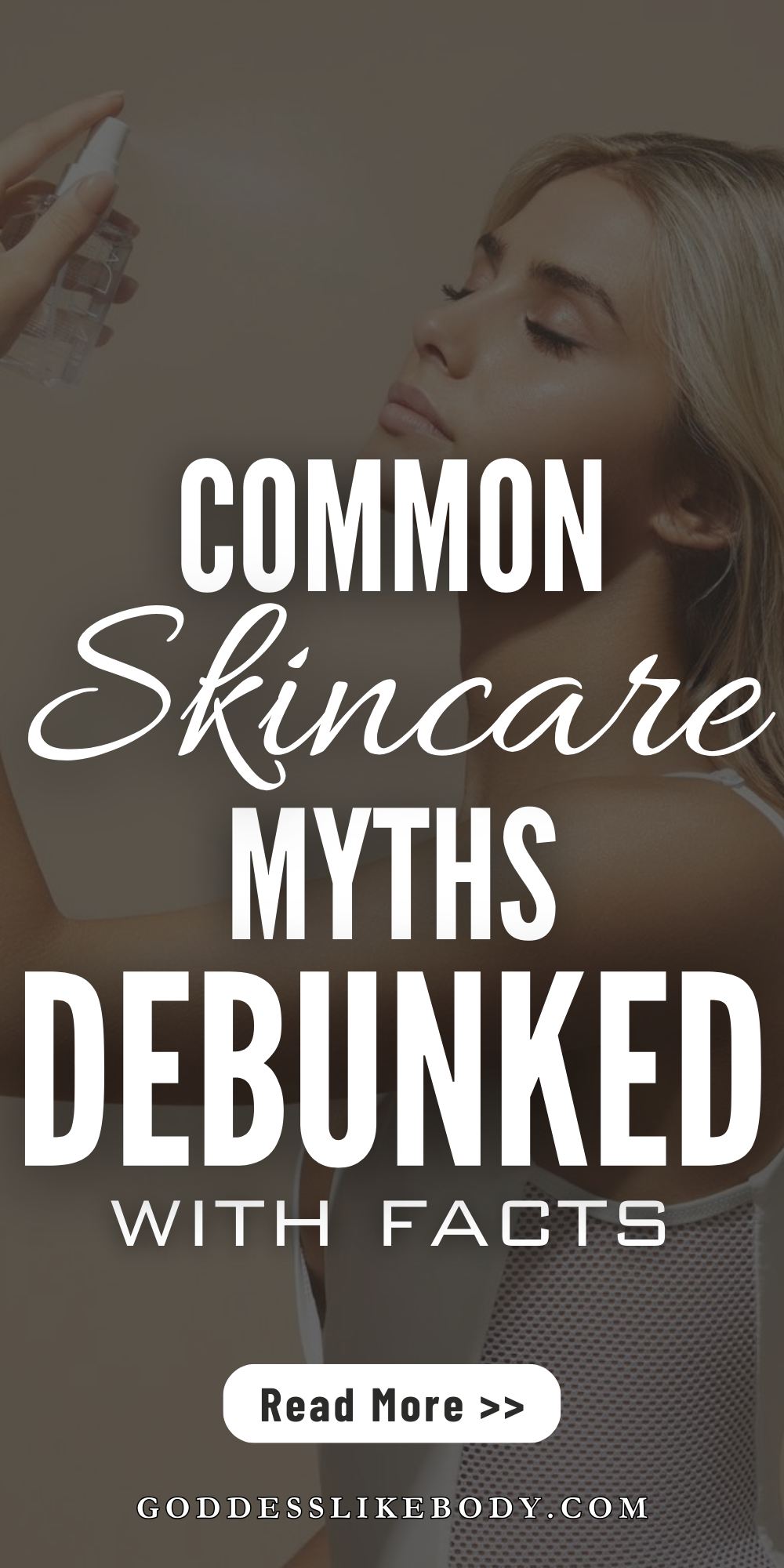
Common Myths About Skincare: Debunked
Skin care is a topic that is often surrounded by myths and misinformation. It can be difficult to separate fact from fiction when it comes to caring for your skin. In this article, we will debunk some skin care tips and help you make informed decisions about your skincare routine.
Myth 1: You don’t need sunscreen on cloudy days
Many people think that sunscreen is only suitable for sunbathing when the sun’s ultraviolet rays are strong. But the truth is that UV rays can still penetrate the cloud and damage your skin. It’s important to use sunscreen with an SPF of at least 30 to protect your skin from harmful UV rays, even on cloudy days.
Myth 2: Expensive products are always better
There is a common misconception that expensive skin care products are always better than cheap skin care products. While some high-end products include luxury ingredients and advanced technology, there are also many affordable options that can deliver great results. The important thing is to find products that have ingredients that suit your skin type and address your specific concerns.
You Might Also Like: 8 Skincare Secrets for Youthful and Ageless Beauty
Drinking Plenty of Water: The Secret to Better Skin?
It is often said that drinking plenty of water can improve the health and appearance of your skin. While staying hydrated is important for overall health, there isn’t enough scientific evidence to support the claim that simply drinking water can improve your skin.

The role of hydration in skin health
Although drinking water is not a magic bullet for perfect skin, proper hydration plays a role in maintaining healthy skin. When you are dehydrated, your skin becomes dry and dull. Drinking enough water helps keep your body hydrated; This can benefit your skin by preventing dryness and promoting healthy skin.
Other factors that affect skin health
Nutrition: A healthy diet that includes fruits, vegetables, and healthy fats can provide your skin with the nutrients it needs to stay healthy.
Skin Care: Using the right cleanser, moisturizer and sunscreen can help protect and care for your skin.
Lifestyle: Factors such as smoking, excessive alcohol consumption, lack of sleep and stress can negatively affect the health and well-being of your skin.
The Chocolate-Acne Connection: Fact or Fiction?
There is an ongoing debate about whether eating chocolate causes or worsens acne. Although some people may experience acne after eating chocolate, there is not enough scientific evidence to prove a direct connection.
Understanding acne development
Acne is a type of skin disease that is affected by many factors such as genetics, hormones and lifestyle. This occurs when the hair follicle becomes clogged with oil and dead skin. Skin infections can also cause pain and acne.
The role of diet in acne
Although certain foods are associated with acne in some people, the relationship between diet and acne is highly individual. Some studies show that high glycemic index foods (such as sugary foods) and dairy products may cause acne in some people. However, more research is needed to understand this relationship.
Natural Remedies for Skin Care
Natural treatments have become increasingly popular when it comes to skin care in recent years. Many people choose to use natural ingredients over commercial products because they believe they are gentler on the skin and do not contain harsh chemicals. Natural remedies often use ingredients found in the kitchen or garden, such as honey, aloe vera, coconut oil, and tea tree oil.
The Benefits of Natural Remedies
One of the primary advantages of using natural remedies for skin care is that they are generally safe for all skin types. Unlike commercial products that may contain antibiotics or allergens, natural treatments rarely have negative side effects. Additionally, natural ingredients often have healing properties that can help resolve various skin conditions such as acne, eczema, or dryness.
List of Common Natural Remedies:
Honey: Honey is known for its antibacterial properties that can help fight acne and moisturize the skin.
Aloe Vera: This plant has soothing and moisturizing properties that can reduce inflammation and pain.
Coconut oil: Coconut oil is rich in fatty acids and is a good moisturizer for dry or sensitive skin.
Tea Tree Oil: Tea tree oil has antibacterial properties and can be used to treat acne and fungal infections.
Commercial Products for Skin Care
Commercial skin care products have been widely used for decades and offer simple solutions to those looking for unique results. These products consist of many active ingredients and are designed to target skin concerns such as signs of aging or pigmentation. They usually come in the form of cleansers, serums, moisturizers and masks.
The Advantages of Commercial Products
Most commercial skin care products are backed by extensive research and rigorously tested to ensure they work. It is formulated with gentle active ingredients to achieve effective results in less time. Additionally, commercial products generally have a longer shelf life than household products, making them easier to use on a daily basis.
List of Common Commercial Products:
Retinol Cream: Retinol cream is known for its anti-aging properties, retinol creams help reduce wrinkles and improve skin texture.
Vitamin C Serum: This antioxidant-rich serum brightens the skin, reduces dark spots and increases collagen production.
Moisturizer Moisturizer: Moisturizer Moisturizer is designed to add moisture and is suitable for dry or dehydrated skin.
Exfoliating Peels: These peelings contain small particles that remove dead skin cells and provide smoother skin.
Naturopathy has a simple method with few side effects and good results. The products provide faster solutions and results thanks to their unique structures. Ultimately, the choice of natural treatments and products comes down to personal preference, skin concerns, and desired results.
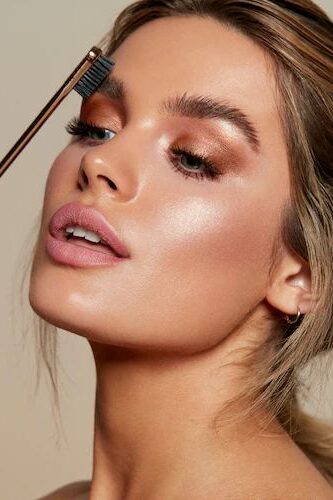
Makeup Every Day: Does it Really Damage Your Skin?
The Impact of Daily Makeup Application
Daily makeup has become a routine for many people, but there are concerns that it will damage the skin. Although makeup can improve our appearance and increase our self-confidence, it is important to understand its impact on the health of our skin. Regular use of heavy or weak makeup can clog pores and cause pimples, pimples, and other skin irritations. In addition, some ingredients in cosmetic products, such as fragrance and antibiotics, may cause allergies or sensitivity in some people.
Taking Care of Your Skin
To minimize the potential damage caused by daily makeup application, it is crucial to adopt a proper skincare routine. First of all, do not forget to clean your face before applying make-up. This helps remove dirt, excess oil and impurities from the skin and reduce the risk of clogged pores. Second, choose a good cosmetic that is labeled “non-comedogenic” or “oil-free.” This formula is less likely to clog pores and cause breakouts. Finally, before going to bed, don’t forget to remove all traces of makeup with a mild cleanser or makeup remover designed for your skin type.
Don’t go to bed with makeup on as it can further clog pores.
Exfoliate regularly to remove dead cells and promote cell renewal.
Moisturize your skin every day to keep it hydrated.
The Importance of Makeup-Free Days
Makeup can give us a sense of pride and help us feel confident about our appearance, but it’s important to give our skin a regular boost with makeup. Create at least one or two “makeup-free days” each week to allow your skin to breathe and recover from irritation caused by makeup.
Today, focus on providing extra care and health to your skin through gentle cleansing, moisturizing facial and facial moisturizer. This is your skin’s chance to always rejuvenate and stay healthy in the long run.
By adopting a suitable skincare routine, using high-quality products, and allowing some makeup-free days, you can minimize the negative impact on your skin while still enjoying the benefits of wearing makeup. Remember, taking care of your skin should always be a priority in order to maintain its overall health and radiance.
You Might Also Like: How to Naturally Reduce Wrinkles: 7 Effective Methods
Benefits of Day Moisturizers
Day Moisturizer is specially designed to protect and moisturize your skin during the day. They often contain ingredients like SPF to protect your skin from harmful UV rays and environmental pollution.
Additionally, daytime moisturizers are generally lighter in texture than nighttime moisturizers, so they are easily absorbed into the skin without leaving an oily residue.
Key benefits of using a day moisturizer include:
Prevent sun damage: Using a daily moisturizer with SPF can help prevent sunburn, premature aging and reduce the risk of skin cancer.
Humidification all day long: Day humidifier replenishes the moisture lost by environmental factors such as air. Pain or fever.
Makeup Base: Many daily moisturizers also serve as a good base for makeup, helping your makeup stay smooth and long-lasting.
Benefits of Night Moisturizers
Night is the time when our skin is repaired and renewed. Overnight Moisturizer is designed to support this natural activity by providing moisture and powerful nutrients. They often contain ingredients that increase collagen production, reduce fine lines and improve overall skin texture.
The advantages of using a night moisturizer include:
Deep Moisturization: Night cream tends to be richer and thicker than day cream; Provides deep moisturizing while sleeping.
Helps cell renewal: Night is the last time of cell renewal. A night moisturizer aids this process by providing the nutrients necessary for cell renewal.
Regarding specific problems: Many night creams solve specific skin problems such as wrinkles, dark spots or acne at night, using active ingredients.
Combining Day and Night Moisturizers for Optimal Skincare
Although day and night moisturizers have different effects, using them together can be beneficial in skin care.
Day Care:
Start the morning by washing your face with cleanser. Follow with a lightweight daytime moisturizer that contains SPF to protect your skin from harmful UV rays. Be careful to use it evenly on your face, neck and all exposed areas.
Night care:
Wash your face again at night to remove makeup, dirt and impurities from all over your face. sky After washing, apply a hydrating moisturizer suitable for your skin type. Gently massage the skin using circular movements.
By including day and night moisturizer in your skin care routine, you can enjoy daily moisturizing, protection and skin rejuvenation.
Overwhelming the Skin
Using too many skincare products at once can overwhelm the skin and disrupt its natural balance. Each product contains different active ingredients and chemicals that can interact with each other, leading to irritation, redness, and even breakouts.
The skin has a natural protective barrier called the acid mantle, which helps maintain moisture and pH levels. When this barrier is compromised by an excessive number of products, it can result in dryness, sensitivity, and inflammation.
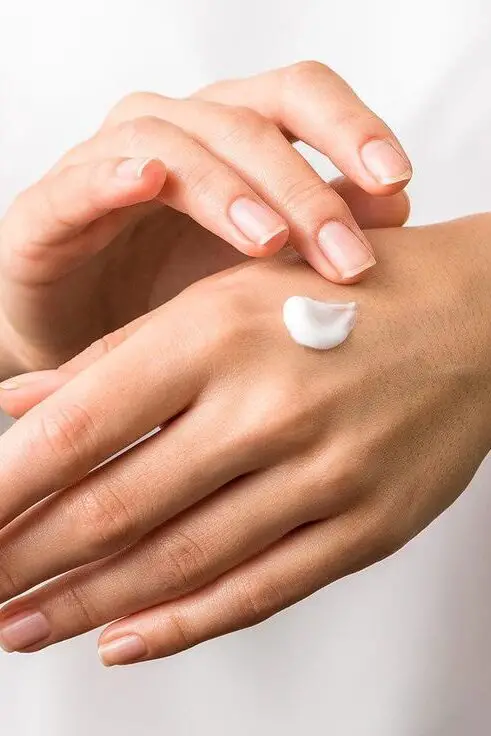
The Importance of Patch Testing
Patch testing is crucial when introducing multiple skincare products into your routine. This involves applying a small amount of each product to a small area of skin (such as behind the ear) and monitoring for any adverse reactions over 24-48 hours. Before applying it to your entire face, you can check for possible irritation or allergies with a patch test.
Daily skin care
In order not to overload the skin, it is necessary to create a daily skin care routine that includes only the necessary products. Start by identifying your skin concerns (like acne, dryness, aging) and then choose products that address those concerns.
Daily care usually includes cleanser, moisturizer, sunscreen (during the day) and care products (such as lotions or creams). Introduce new products slowly and watch your skin’s reaction before adding more products.
Follow a simple procedure: Do not use cosmetics or cosmetic products that target similar problems, choose products that have many concerns.
Listen to your skin: Pay attention to how your skin feels and take care after using certain products. If you notice any adverse changes or discomfort, consider discontinuing or reducing use of this product.
Consult an expert: Seek advice from a dentist or dermatologist to ensure you’re using the right products for your skin type and concerns.

Myth: Eating oily foods directly causes breakouts
The Truth about Oily Foods and Acne
Contrary to popular belief, eating fatty foods does not directly cause acne. While it’s true that eating too much fatty and fried foods can be detrimental to your overall health, scientific evidence establishing a direct link to acne is limited.
But some studies show that a high glycemic index diet, including sugary and processed foods, may cause acne symptoms.
It is important to remember that everyone’s skin responds differently to many factors such as nutrition. Some people may develop acne after eating oily foods due to their specific skin type or food allergies. That’s why it’s important to pay attention to your body and how it reacts to different types of foods.
Tips for Managing Breakouts
Eating a Balanced Diet
To maintain healthy skin and reduce acne, focus on a healthy diet that includes fruits, vegetables, whole grains and lean protein. These nutritious foods provide essential vitamins and minerals to support healthy skin.
Include Skin-Friendly Foods:
Antioxidant-rich foods like fruits, green leafy vegetables, and dark chocolate can help fight infection and keep skin clear.
Include omega-3 fatty acids found in fish such as salmon or walnuts because they have anti-inflammatory properties that will help with skin acne.
Probiotic-rich foods like yogurt or kefir can help balance gut bacteria and improve skin health.
Maintaining Good Hygiene Practices
In addition to a balanced diet, proper hygiene plays a crucial role in managing breakouts. Ensure you:
Wash Your Face Regularly:
Use a cleanser twice a day to remove excess oil, dirt, and bacteria from your face and skin.
Avoid scrubbing the skin or using abrasive products as this can irritate the skin and cause acne.
Avoid Touching Your Face:
Keep your hands as far away from your face as possible to prevent contamination of dirt and grime
Remember that diet and hygiene are important. Getting acne under control is important, but you’ll need to consult a dermatologist for individual advice for your skin type, muscle and aches.

Sunscreen: Is it Only for Sunny Days or Year-Round Protection?
The Importance of Daily Sun Protection
Many people mistakenly believe that sunscreen is only suitable for the sun or summer. But dermatologists recommend using sunscreen as part of your daily skin care routine, regardless of the weather.
The sun’s harmful ultraviolet (UV) rays can pass through clouds and windows and damage your skin even on cloudy or overcast days.
Additionally, UV rays can pass through glass, which means you’re still exposed when you’re at home. Therefore, it is important to use sunscreen every day to protect your skin from the risk of premature aging, sunburn and skin cancer.
Choosing the Right Sunscreen
There are a few things to consider when choosing a sunscreen for year-round protection:
SPF (Sun Protection Factor): Choose broad-spectrum sunscreen. Use sunscreen with an SPF of at least 30 to protect against UVA and UVA UVB. rays.
Waterproof: If you will be participating in water activities or excessive sweating, choose a waterproof formula for longer protection.
Skin Type: Consider your skin type when choosing sunscreen. People with oily skin can choose oil-free or gel formulas, while those with dry skin can benefit from moisturizing sunscreens.
The Benefits of Year-Round Sunscreen Use
Using sunscreen once a year has many benefits in addition to sun protection:
Prevents premature aging: Exposure to UV rays is one of the leading causes of premature aging. Signs of premature aging such as wrinkles, fine lines and age spots. Regular use of sunscreen helps keep your skin young.
Reduces the risk of skin cancer: Skin cancer is a serious problem and protecting the skin from damage and avoiding UV rays can reduce the risk of this life-threatening disease.
Keep the face even: Anti-sun products help prevent the formation of wrinkles and hyperpigmentation, providing a more even skin tone.
PROTECTION: By protecting your skin from UV rays, sunscreen helps maintain its general health and prevent many skin diseases caused by long-term sun exposure.
By choosing the right sunscreen and using it regularly throughout the year, you can protect your skin from UV rays, preserve its health and appearance, and reduce the risk of long-term damage. When exposed to direct sunlight, remember to reapply sunscreen every two hours for optimal protection.
The Benefits of Exfoliating
Exfoliation is a skin care process that involves removing dead skin cells from the skin. This technique provides many benefits to achieve young and radiant skin. First, exfoliating helps unclog pores, prevent acne and reduce the appearance of blackheads.
Exfoliation, which removes dead skin cells, maximizes the effectiveness of other skin care products by allowing them to penetrate deeper into the skin.
In addition, regular peeling also supports cell renewal, which is important for skin metabolism. Keep your skin young. As we age, our cell turnover slows down, resulting in dull skin tone and fine lines.
We can start this process by exfoliating regularly and stimulate new cell growth, making the face brighter and smoother.
Types of Exfoliants
There are two major types of exfoliants: physical exfoliants and chemical exfoliants.
Physical Exfoliants:
Scrubs or brushes with abrasive textures
Microdermabrasion
Skin cleansing devices with rotating heads
Chemical Exfoliants:
Glycolic acid
Lactic acid
Salicylic acid
Enzymes (such as papaya or pineapple)
Both physical and chemical exfoliants have their own benefits, and it’s important to choose one that suits your skin type and preferences.
You Might Also Like: 5 Common Skin Issues And How To Treat Them Naturally
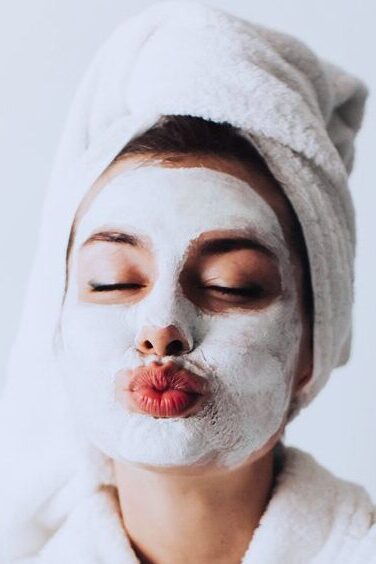
The Importance of Proper Exfoliation Techniques
To reap the full benefits of peeling, it is important to follow the procedures and instructions. First, it is important not to over-exfoliate as this can cause skin irritation and sensitivity. For many skin types, exfoliating 1-3 times a week is sufficient.
When using body peeling, gently massage the product into wet skin with circular movements. Do not use too much force or scrub hard as this may damage the skin.
Follow manufacturer’s directions for exfoliants carefully and start with less if you have sensitive skin.
After peeling, do not forget to moisturize your skin to protect the skin’s new processes. It’s important to use sunscreen throughout the day, as exfoliation can make skin more sensitive to UV rays.
The Importance of Skincare
Skin care is an important part of our daily lives as it helps maintain the health and appearance of our skin.
However, when choosing skin care products, we often face the dilemma of whether we should choose cheap products or invest in more expensive products.
It is important to understand that the effectiveness of skin care products depends on many factors such as ingredients, formula and individual skin type.
Ingredients Matter
An important point to consider when comparing cheap and expensive skin care products is the ingredients used.
Expensive products often use high-quality materials that can be backed by extensive research and testing.
These ingredients include antioxidants, peptides, hyaluronic acid and retinol, among others. On the other hand, cheap skin care products may contain similar ingredients but in smaller or lesser amounts.
List of Effective Ingredients:
Vitamin C: Known for its brightening and antioxidant properties
Nicotinamide: Improves skin beauty and reduces inflammation
Hyaluronic Acid: Provides moisture and plumps skin complexion
Glycolic acid: removes dead skin More smooth skin cells for a complexion
Retinol: A powerful ingredient that reduces wrinkles and stimulates new cell growth
Consideration for Individual Skin Type
Another thing you should consider when deciding between cheap and expensive skin care products is your skin type. Everyone has unique needs when it comes to skin care.
Some people may have sensitive or acne-prone skin that requires a gentle formula with specific ingredients, while others may have normal or dry skin that would benefit from a moisturizer and a stronger treatment.
Customized Formulations
Expensive skincare brands often offer a variety of products tailored to different skin types and concerns. They may have specialized lines for sensitive skin, anti-aging, acne-prone skin, or specific conditions such as rosacea or hyperpigmentation.
These customized formulations will provide targeted solutions for specific skin issues. On the other hand, affordable skincare products can have a more general approach, catering to a broader audience without addressing individual needs as precisely.
List of Skincare Concerns:
Sensitive skin: needs gentle, soothing ingredients
Aging Skin: Needs products with anti-aging ingredients and collagen boosters
Skin acne: Benefits from oil-free and non-comedogenic formulas
Dry Skin: Requires rich moisturizers with hydrating ingredients
Uneven Skin Tone: Can benefit from brightening agents and exfoliants
Depending on the ingredients used, the quality of the formula, and the person’s skin, both cheap and expensive options can produce good results.
It’s important to pay attention to your skin’s needs and choose products that address your specific concerns, including active ingredients, benefits, customization options and personal budgets.
Skin Conditions Aggravated by Stress
Stress can have a huge impact on the health and appearance of your skin. One way depression manifests itself is by exacerbating existing skin conditions.
For people with acne-prone skin, stress can cause breakouts and make existing blemishes worse.
This is because stress stimulates the production of cortisol, a chemical that causes excess oil on the skin, causing clogged pores and acne formation.
Additionally, stress can worsen conditions such as eczema and psoriasis, causing redness, itching, and pain.
Effects on Skin Aging
Stress not only affects existing skin but also causes skin aging. Chronic stress causes oxidative stress in the body, causing the collagen and elastin fibers that make the skin firm and flexible to break down.
This can cause fine lines, wrinkles and sagging skin. Additionally, stress affects the skin’s natural healing process, making it difficult for damaged cells to regenerate.
How Stress Affects Skin Health
Stress affects our overall health by affecting many physiological processes in our body. When it comes to the health of our skin, stress can negatively affect its function.
Continuous cortisol release due to chronic stress damages our skin’s defenses, making the skin vulnerable to external factors such as bad weather and UV radiation. This can cause increased sensitivity, dryness and irritation.
The role of stress hormones
The release of stress hormones such as cortisol can cause inflammation in our body. Inflammation not only damages existing skin, but can also lead to the formation of new skin. It can cause skin redness, swelling, and even itching or rashes.
In addition, stress hormones can also affect the balance of the skin microbiome, which is the bacterial ecosystem that normally lives on our skin. This imbalance can lead to the growth of bad bacteria, leading to acne or other skin diseases.
Ways to Reduce Stress for Better Skin
To improve your skin’s health and appearance, it is crucial to manage stress effectively.
Here are some strategies you can incorporate into your daily routine:
Practice relaxation techniques such as deep breathing exercises, meditation, or yoga. – Engage in regular physical activity to release endorphins and reduce stress levels.
Prioritize self-care activities that bring you joy and help you unwind, such as taking a warm bath or reading a book.
Ensure you get enough quality sleep as lack of sleep can exacerbate stress levels and negatively impact your skin.
Create a skin care routine that uses gentle products suitable for your skin type and avoid harsh ingredients that will further damage your skin.
If you are really stressed, seek support from friends, family or a professional. By using these stress management techniques, you can not only improve your overall health but also have healthy, glowing skin.
The Link Between Touching Your Face and Acne
Frequent touching of the face can cause acne. When you touch your face, you transfer bacteria, dirt, and oil from your hands to your skin.
This can clog pores and cause acne. Additionally, touching your face can cause irritation and pain, leading to existing acne breakouts. Therefore, it is important that you do not touch your face every day to keep your skin clean and healthy.
Tips to Prevent Touching Your Face
Keep your hands busy: Find other games or toys to keep your hands busy, like pressing the stress button or playing with small objects.
Do not rest your chin on your hand: This habit will lead you not to touch your face. Try to notice this behavior and try to correct it if you catch yourself doing it.
Practice hygiene: Wash your hands regularly with soap and water for 20 seconds to reduce the spread of germs on your face.
The Impact of Touching Your Face on Other Skin Issues
Frequently touching your face can cause other skin problems besides acne. For example, it can aggravate conditions such as dermatitis or eczema by spreading irritants or allergens into the skin.
In addition, excessive touching can damage the function of the skin, leading to further infection and environmental damage.
Breaking the Habit: How to Stop Touching Your Face
Promote awareness: Pay attention to when you’re most likely to touch your face when you’re stressed or bored. Analyzing these results will help you learn more about the character.
Use Reminder: Place a sticker or alarm clock in places where you touch your face frequently, such as the desk or bathroom mirror. This visual message can remind you not to put your hands on your face.
Practice mindfulness: Engage in activities such as meditation or deep breathing to reduce stress and anxiety, which often cause emotions to touch your face.
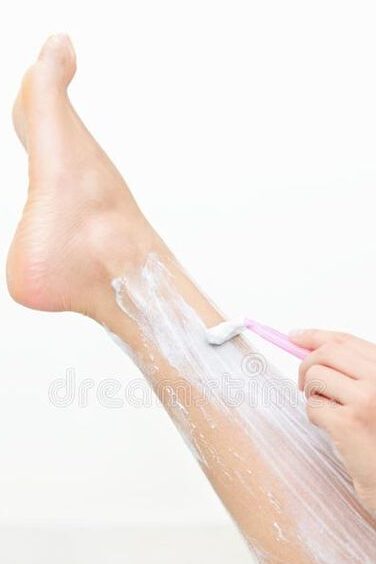
Myth: Shaving Makes Hair Grow Back Thicker
The Science Behind It
One of the biggest misconceptions about shaving is that it causes hair to grow back thicker. However, this belief is wrong. The thickness and color of our hair is determined by factors such as genetics, hormones and age.
When we shave, we only remove hair from the skin, not the hair from the root or follicle. Therefore, the regrowth looks thicker because its head is blunt rather than tapered.
Busting the Myth
To further debunk this myth, numerous studies have been conducted over the years. In one such study published in the Journal of Investigative Dermatology, researchers found that shaving had no impact on the thickness or density of hair growth.
Another study published in the British Journal of Dermatology concluded that there was no difference in hair diameter between shaved and unshaved areas of participants’ bodies.
You Might Also Like: The Ultimate Guide to Skin Cleansing: What You Need to Know
Myth: Shaving Makes Hair Grow Back Darker
The Truth About Hair Color
Contrary to popular belief, shaving does not change the natural color of your hair. The color of our hair is determined by the melanin produced in each hair follicle.
When we shave, we only remove the part of the hair shaft above the skin surface that contains melanin. Therefore, when it grows back it will look slightly darker due to the lack of light.
Solid Evidence Against This Myth
Evidence supporting this debunking can be found in a study published in JAMA Dermatology. Researchers examined shaved and unshaved areas on participants’ bodies and found no significant difference in terms of hair color.
They concluded that the perception of darker regrowth is merely an optical illusion caused by the contrast between shaved and unshaved hair.
Overall, it is important to remember that shaving does not affect the thickness or color of our hair. These common myths have been debunked by scientific research, providing evidence that shaving only affects the visible portion of the hair above the skin’s surface. So, feel free to continue shaving without worrying about these misconceptions!
In conclusion, it is important to separate fact from fiction when it comes to skincare. You should wear sunscreen even on cloudy days, luxury products aren’t always better and just drinking water isn’t a panacea for improving your skin.
Staying hydrated, eating well, having good skin care and a healthy diet contribute to overall healthy skin. Although there is no direct link between eating chocolate and acne, personal factors such as genetics and hormones play a larger role in the development of acne.
It is important to use evidence for your skin care rather than relying on myths.
Summary
Debunking Common Skin Care Myths: Unveiling the Truth Behind Skincare Facts Skincare is a topic that is often surrounded by misconceptions and myths. However, evidence-based practices can help in debunking these skincare myths and providing accurate information.
Some widely believed skincare facts are often misunderstood or misrepresented, leading to confusion among consumers. To maintain healthy skin, evidence-based tips should be followed. Scientific research has proven several skincare myths false, emphasizing the importance of relying on evidence-based information.
It can be difficult to learn the truth about skin care from commercial claims, but consumer education plays an important role in eliminating these mistakes. Following skin care myths without scientific basis may lead to risks or consequences.
It is important to promote evidence-based practices in the skin care community and raise public awareness. Trusted information can help dispel skin care myths and educate consumers on proven skin care practices.
You Might Also Like: 12 Beauty Hacks: Every Woman Should Know to Glow Up Naturally


